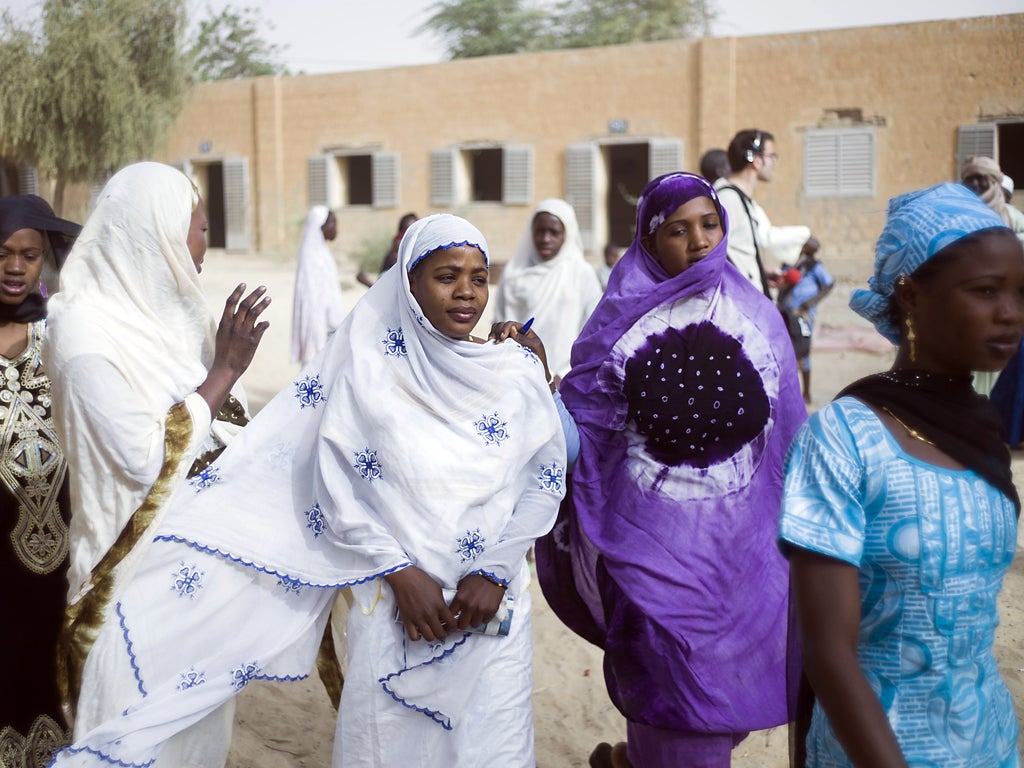Will Timbuktu be simply a repeat of Kandahar?
After the retreat of the Islamists, scenes in Timbuktu have been very differentin the past week


Your support helps us to tell the story
From reproductive rights to climate change to Big Tech, The Independent is on the ground when the story is developing. Whether it's investigating the financials of Elon Musk's pro-Trump PAC or producing our latest documentary, 'The A Word', which shines a light on the American women fighting for reproductive rights, we know how important it is to parse out the facts from the messaging.
At such a critical moment in US history, we need reporters on the ground. Your donation allows us to keep sending journalists to speak to both sides of the story.
The Independent is trusted by Americans across the entire political spectrum. And unlike many other quality news outlets, we choose not to lock Americans out of our reporting and analysis with paywalls. We believe quality journalism should be available to everyone, paid for by those who can afford it.
Your support makes all the difference.Women breaking free of the hijab and putting on make-up; music now booming out of shopfronts; children playing football in the streets; ringing declarations that people would never again be subjected to such vicious application of sharia.
These were the joyous scenes in Timbuktu this week after the retreat of the Islamists. And these were the joyous scenes I saw in Kandahar a dozen years ago after the Taliban fled their birthplace: Afghan women and men looking forward to a brave new world away from vicious zealotry.
One needs to be careful about declaring that Mali is the Sahel’s Afghanistan. Different conflicts involve different dynamics. However, there are parallels between Mali and Afghanistan and there is the possibility that Timbuktu a decade from now may indeed resemble Kandahar. Hard-won gains on civil rights – especially those of women – could be clawed back, the faltering steps towards democracy tripped by corruption, and a vacuum in security could allow the jihadists to return.
The last point is the one of obvious and most immediate concern. One cannot have the development and civic society Mali desperately needs without security. The French with their experience in Afghanistan would know only too well that capturing territory without having boots on the ground to hold it is futile. They would also know that having 2,500 combat troops here (even if they do all stay – and they will not) backed by a West African force of 8,000 is nothing like large enough for a country the size of Mali.
One can argue that the Islamists in Mali are not of the fighting calibre of the Taliban, but we simply do not know, as the fighters naturally chose not to take on First World firepower in battle and withdrew for what is likely to be a prolonged insurgency.
The ideal way of combating extremism would be through a representative, inclusive government. Millions of dollars were spent trying to achieve this in Afghanistan. Vast amounts of the money disappeared into corrupt hands.
There is nothing to suggest, looking at Mali’s recent history of ineffective and corrupt administrations and military coups, that it is in a better place to fulfil the dream that failed in Afghanistan.
Join our commenting forum
Join thought-provoking conversations, follow other Independent readers and see their replies
Comments